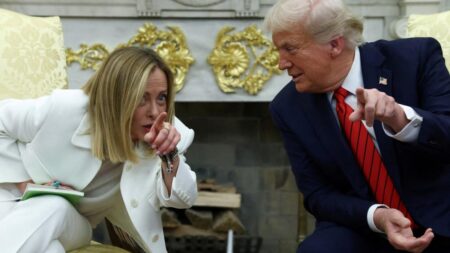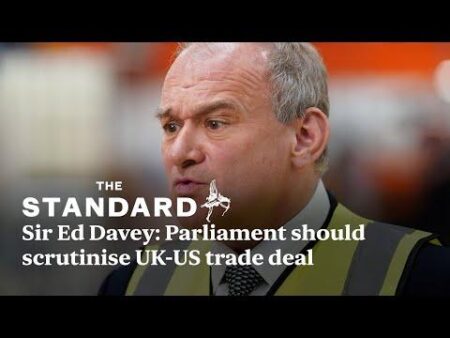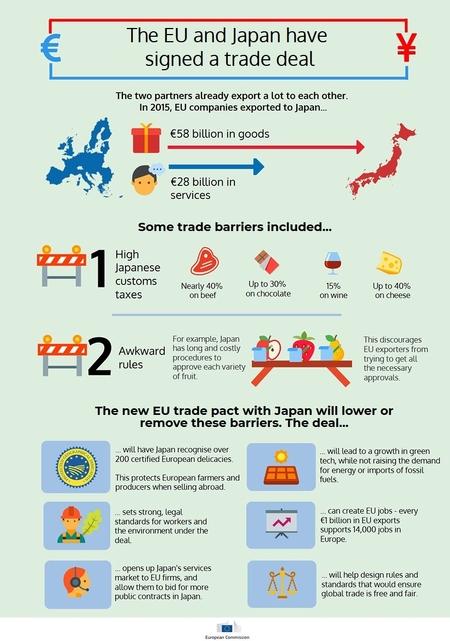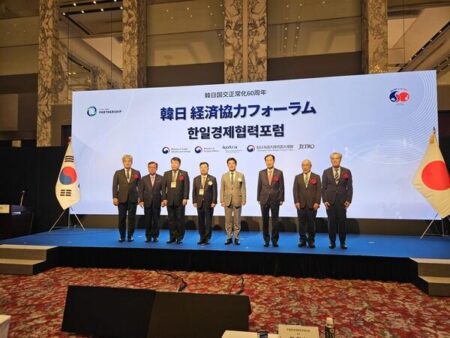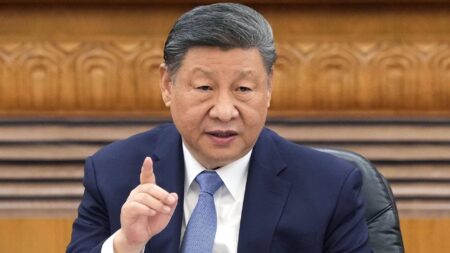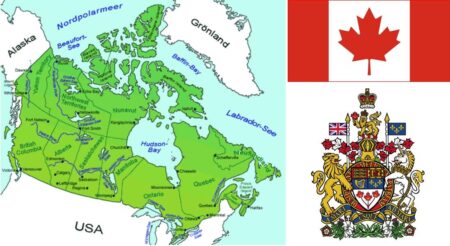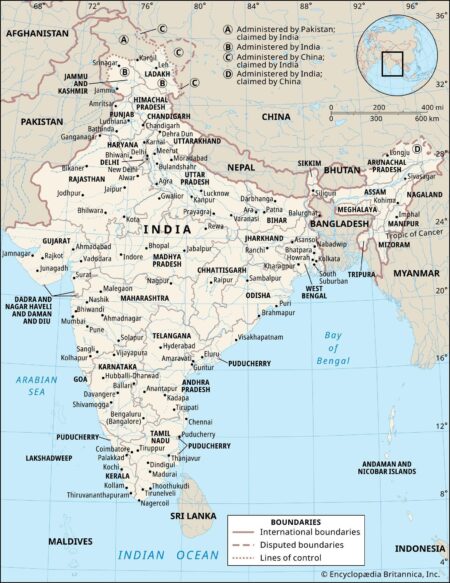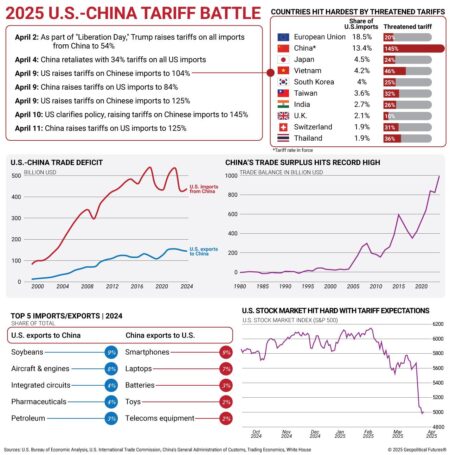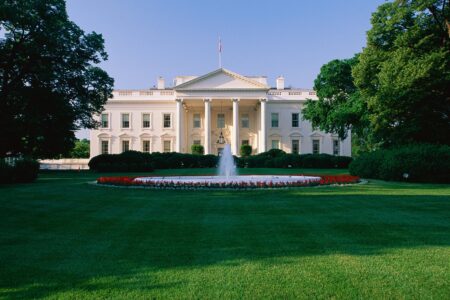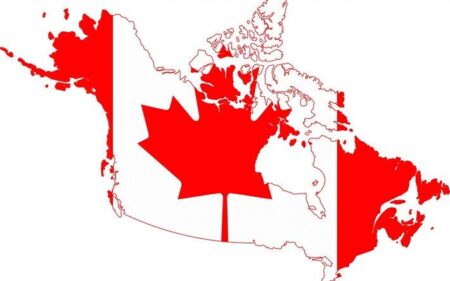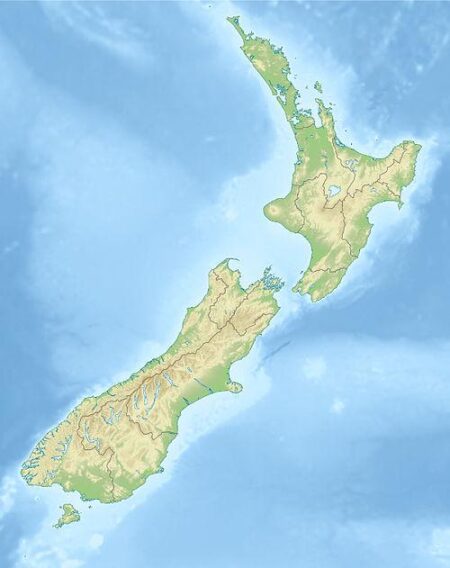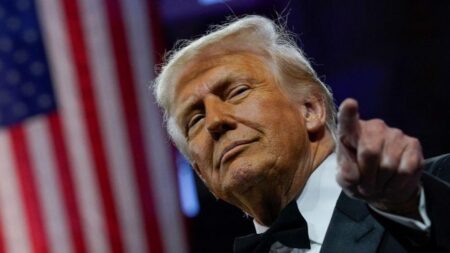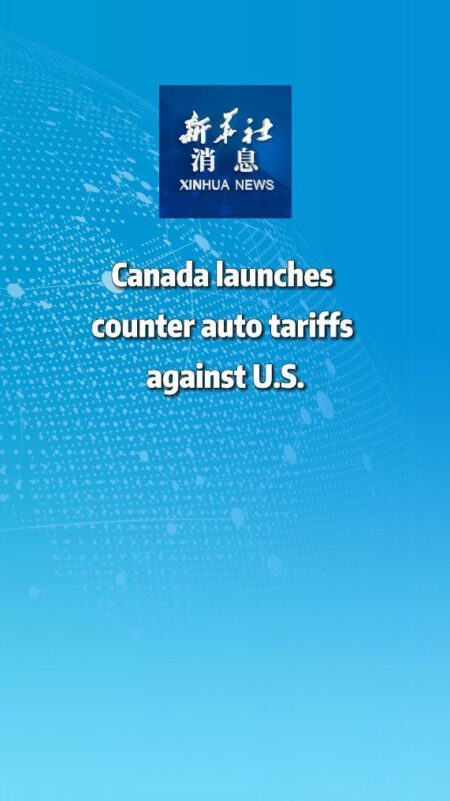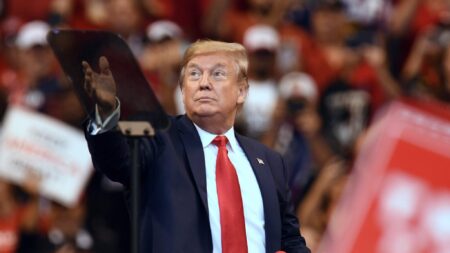In a significant meeting at the White House, former President Donald Trump and Italian Prime Minister Giorgia Meloni came together to tackle the pressing issues surrounding trade agreements amidst growing tariff uncertainties. Both leaders passionately underscored the importance of collaboration, aiming to strengthen the economic bonds that unite the U.S. and Italy.
Browsing: trade negotiations
In a recent statement, Senator JD Vance expressed optimism about the prospects of a UK-U.S. trade deal, highlighting the robust connections and common goals that unite the two nations. He pointed out that former President Trump holds a deep-seated fondness for Britain, a sentiment that could significantly enhance the negotiation process
Bessent has identified Japan, the U.K., Australia, and South Korea as key priorities for future trade agreements, aiming to strengthen economic ties and enhance market access. This strategic focus signals a commitment to expanding international trade relations.
The S. Korea–Japan Economic Cooperation Forum convened in Tokyo amid escalating tariff pressures from the Trump administration. Leaders from both nations sought to strengthen ties and address economic challenges, emphasizing collaboration to navigate a turbulent trade landscape.
As tensions escalate in the trade war, China is strategically recalibrating its economic policies in response to increased pressure from the Trump administration. Beijing is focusing on strengthening domestic markets while seeking new trade partnerships to mitigate potential impacts.
Chinese President Xi Jinping embarks on an aggressive diplomatic tour across Asia, seeking to bolster trade relations amid an ongoing tariff war with the United States. His efforts aim to strengthen alliances and mitigate economic impacts from the escalating conflict.
In response to the recent tightening of auto tariffs by the United States, Canadian Prime Minister announced that Canada will implement matching tariffs. This move is aimed at protecting Canadian industries amid escalating trade tensions between the two countries.
India has asserted its commitment to fair trade practices following Donald Trump’s decision to impose a 90-day pause on tariffs. The Indian government emphasized that negotiations should not occur under pressure, reaffirming its stance on equitable economic dialogue.
Brazil is shifting its focus toward negotiation in response to recent U.S. trade tariffs, officials announced. The move aims to address trade tensions and foster stronger economic ties between the two nations, emphasizing dialogue over confrontation.
As tensions escalate in the ongoing trade conflict, experts weigh in on whether China can withstand a prolonged U.S. tariff war. With its vast manufacturing base and strategic economic measures, Beijing may have tools to mitigate the impact.
In the latest edition of CNBC’s Inside India newsletter, analysts explore India’s strategic leverage in trade negotiations with the U.S. Amidst shifting global dynamics, India’s economic potential and market access could significantly influence outcomes.
As the US-China tariff battle escalates, analysts are increasingly scrutinizing former President Trump’s endgame. With tariffs impacting trade dynamics and consumer prices, the long-term implications for both economies remain uncertain as negotiations continue to stall.
In a bid to mitigate escalating tensions in the ongoing trade war, the White House is reportedly urging Chinese President Xi Jinping to reach out to former President Donald Trump. The call aims to explore potential solutions as tariffs and trade barriers intensify.
In a significant development, Bessent has been appointed to spearhead trade negotiations with Japan, as reported by the Wall Street Journal. This move aims to strengthen economic ties and address key trade issues between the two nations.
In response to the U.S. imposing tariffs on Canadian auto imports, Canada has announced reciprocal measures aimed at protecting its automotive industry. The move escalates trade tensions, as both nations confront the growing impact on their economies.
New Zealand and Australia are actively engaging with international partners to strengthen free trade agreements, emphasizing the need for collaborative economic policies. This initiative aims to bolster regional stability and foster economic growth across nations.
Japan’s former Defense Minister Shigeru Ishiba is advocating for a comprehensive agreement with the U.S. to address tariff issues. As tensions rise over trade policies, Ishiba emphasizes the need for collaboration to secure mutual economic interests.
In a move that could reshape transatlantic trade relations, former President Donald Trump has urged France to reconsider its trade partnerships, including the potential implications of the Mercosur deal. This call comes amid ongoing tensions over global trade policies.
Starting April 9, Canada will implement counter-tariffs on U.S.-made vehicles. This move targets a range of automobiles and auto parts, potentially raising prices for consumers and impacting trade relations between the two nations.
As Trump-era tariffs pose a challenge, Argentina is intensifying efforts to secure a trade deal in Washington. Officials aim to bolster economic ties and mitigate potential impacts of U.S. tariffs on Argentine exports, highlighting the urgency of negotiations.

